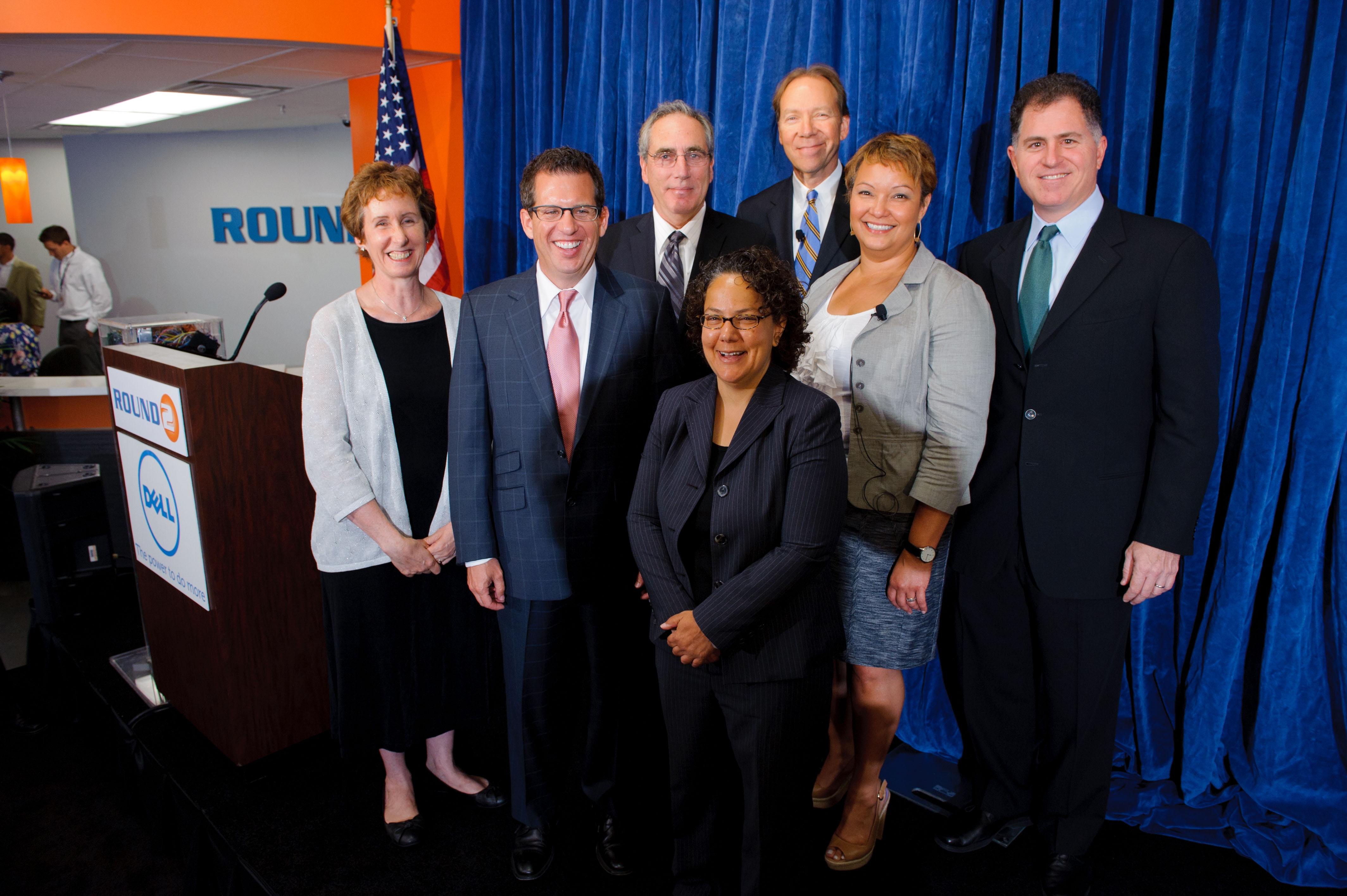E-waste is the largest growing waste stream in the country. Americans generate 2.5 million tons of e-waste a year— more than enough to fill a line of dump trucks from our Nation's capital to Disney World. The U.S. Environmental Protection Agency (EPA) estimates 140 million cell phones – 65,000 tons – are discarded in the U.S. each year. Some are shoved into drawers, others end up in landfills. Today, only about 10 percent are collected for reuse or recycling.
On July 20 the EPA invited Sprint, along with Dell and Sony, to Austin, Texas to be among the first corporations to publicly commit to follow a new national e-waste strategy. We were honored to join EPA Administrator Lisa Jackson, General Services Administrator Martha Johnson, and White House Council on Environmental Quality Chair Nancy Sutley as they issued the National Strategy for Electronics Stewardship.
The collaborative work of the EPA, General Services Administration (GSA), Council on Environmental Quality (CEQ) and the dozen additional agencies represented on the e-waste task force that developed the National Strategy over the past eight months is an example to all who manufacture and distribute electronic products. Sprint commends the Federal Government's commitment to ensure that all electronics it uses are reused or recycled at a certified recycler. An e-waste solution will require on-going collaboration, shared commitment, accountability and meaningful action from companies in all sectors. I am proud that Sprint – along with Dell and Sony – has implemented sustainable business practices early on.

(Left to right): GSA Administrator Martha N. Johnson; Round2 Recycling CEO Randy Weiss; Mark Small, Vice President for Corporate Environment, Safety and Health, Sony Electronics Inc.; White House Council on Environmental Quality Chair Nancy Sutley; Sprint CEO Dan Hesse; EPA Administrator Lisa P. Jackson; Dell Inc. CEO Michael Dell. (Photo by Eric Vance, US EPA)
Sprint's Electronics Stewardship Policy sets aggressive e-waste goals, including the collection of nine phones for reuse or recycling for every 10 sold by 2017. To date, Sprint has collected more than 25 million mobile phones— keeping them out of landfills, helping to conserve resources, reducing greenhouse gas emissions, and preventing air and water pollution.
For the second year, Sprint received the Sustainability Leadership Award from the International Electronics Recycling Conference for our full-lifecycle product approach. On the design end, we have more environmentally-friendly devices and accessories than any other carrier. We recently launched our fourth green device and first eco-friendly Android phone – the new Samsung Replenish. It's made with 82 percent recyclable materials, and is the first phone in the U.S. with a solar battery cover. And it's the first mobile device to receive UL Environment's Platinum certification.
At the other end of the lifecycle, Sprint's industry-first Electronics Stewardship Policy gave us the opportunity to work with environmental organizations like BSR, Basel Action Network and ABI Research to develop goals. The new national e-waste policy will enhance progress in the area of sustainable electronics management. Sprint's commitment to the new national strategy will boost our goals in several areas including greater transparency in our operations.
Sprint is honored to be among the first companies to sign the new sustainable electronics management policy and to make our commitment public.
Dan Hesse is CEO of Sprint



